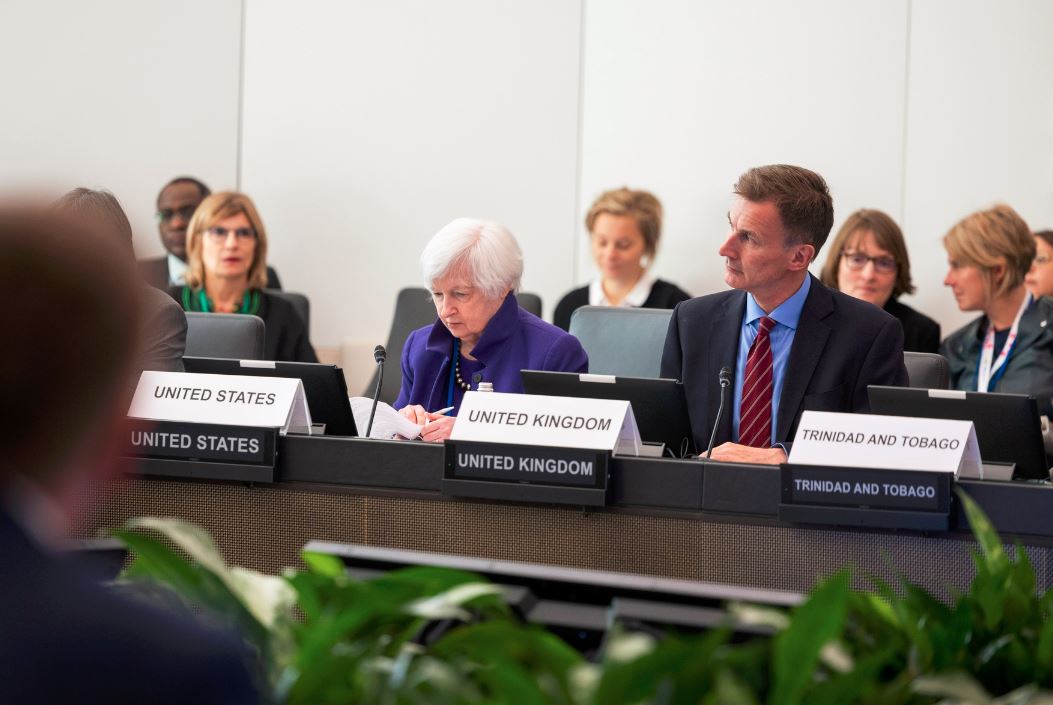Chancellor Jeremy Hunt has admitted industrial strikes have hit the UK economy which recorded zero growth in February.
Hunt has ruled out awarding higher pay deals for public sector workers to end the strikes, insisting such a move would be inflationary and have a damaging impact on the economy.
Office for National Statistics (ONS) figures for February, released today (April 13) show the UK economy recorded 0.0% growth – a fall from 0.4% in January – with economists agreeing that strikes are having a negative impact on economic growth.
Teachers’ strikes have had the biggest impact on the economy, accounting for a 1.7% fall in output from the education sector. Strikes by civil servants also adversely affected Britain’s GDP for February with workers across the public sector taking industrial action for better pay.
Speaking at the International Monetary Fund’s (IMF) spring meeting in Washington – in the midst of the junior doctors’ four day strike – Hunt was asked if the strikes are worth the hit to the economy.
“The one thing we won’t do, because it will be a terrible mistake, is to agree to an inflationary pay rise that means we are still talking about inflation in a year’s time,” said Hunt.
“If we stick to the plan we’ll bring inflation down to below 3% this year and then we’ll put these pressures behind us and I think that’s what the British people want the government to do.”
Other figures published today show the UK is the worst performing exporter in the G7 with goods traded overseas still 9% lower than before the pandemic.
Analysis by the Financial Times shows UK goods exports “are lagging all other G7 economies” which trade experts said “provided more evidence of the impact of Brexit.”
ONS figures published in March for the final quarter of 2022 show UK export volumes – excluding precious metals – are more than 9% lower than the pre-pandemic 2019 average.
Worryingly for British exporters, analysis by both the Office for Budget Responsibility and the Bank of England suggest UK exports may be even weaker. The FT reports the OBR predicts “the underperformance will continue for the next two years.”
The predictions are shared by the IMF which is forecasting the UK economy will be the worst performing of all G7 and G20 nations this year, contracting by 0.3% in 2023.
In Washington, Hunt rejected the IMF’s prediction saying the organisation had “undershot” on the British economy’s performance in earlier forecasts but added the IMF has said the UK economy is back-on-track following his budgets.
Shadow chancellor Rachel Reeves said: “Despite our enormous promise and potential as a country, Britain is still lagging behind on the global stage with growth on the floor.”




